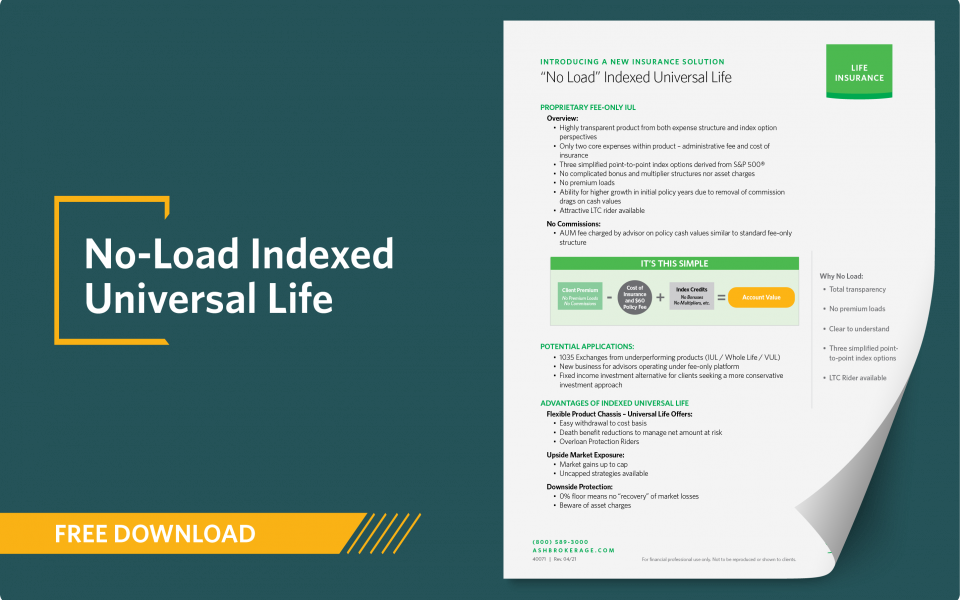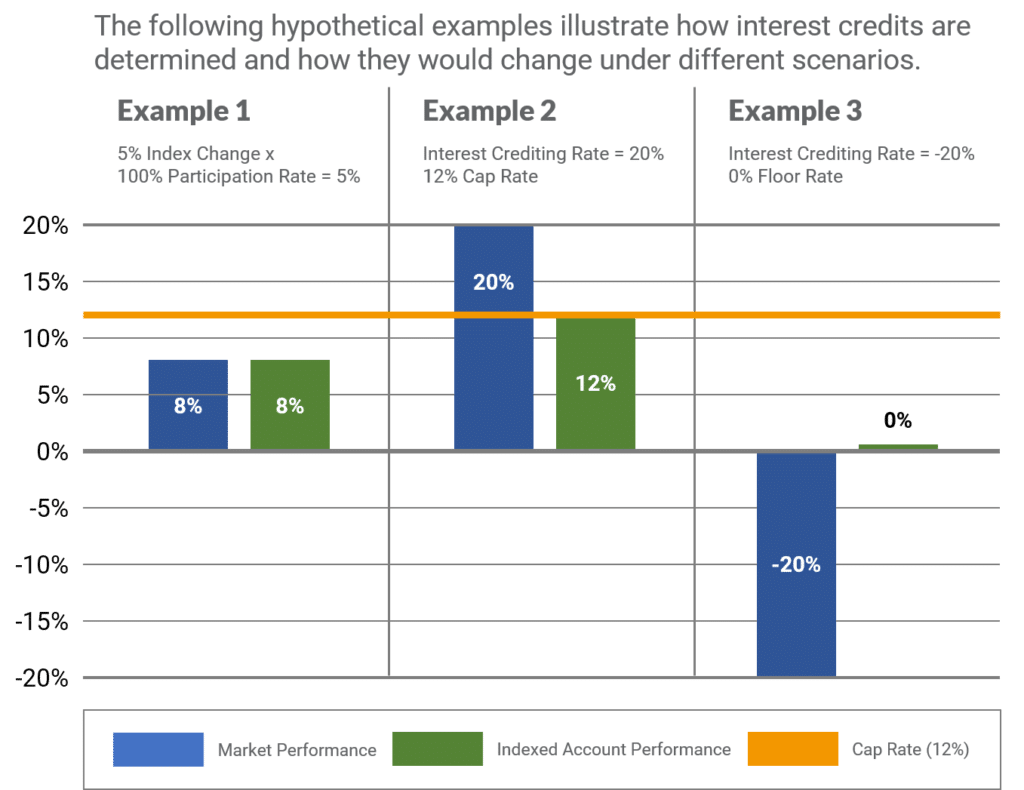All Categories
Featured
Table of Contents
Do they compare the IUL to something like the Lead Total Amount Stock Market Fund Admiral Shares with no load, an expense proportion (EMERGENCY ROOM) of 5 basis points, a turn over ratio of 4.3%, and a phenomenal tax-efficient document of circulations? No, they compare it to some horrible proactively taken care of fund with an 8% lots, a 2% EMERGENCY ROOM, an 80% turnover ratio, and a terrible record of temporary funding gain circulations.
Common funds usually make yearly taxed distributions to fund owners, even when the value of their fund has actually decreased in worth. Shared funds not just call for income coverage (and the resulting yearly taxes) when the shared fund is increasing in value, however can additionally enforce earnings tax obligations in a year when the fund has actually dropped in value.
You can tax-manage the fund, gathering losses and gains in order to decrease taxed distributions to the investors, however that isn't in some way going to transform the reported return of the fund. The possession of mutual funds might require the mutual fund proprietor to pay estimated tax obligations (what is the difference between universal and whole life insurance).

IULs are very easy to position so that, at the proprietor's fatality, the beneficiary is exempt to either income or estate tax obligations. The very same tax reduction strategies do not work nearly as well with common funds. There are countless, commonly pricey, tax obligation traps linked with the timed trading of shared fund shares, catches that do not relate to indexed life Insurance.
Chances aren't extremely high that you're mosting likely to undergo the AMT because of your mutual fund circulations if you aren't without them. The rest of this one is half-truths at finest. While it is real that there is no earnings tax due to your beneficiaries when they inherit the proceeds of your IUL plan, it is likewise true that there is no income tax due to your successors when they inherit a common fund in a taxable account from you.
Best Iul Life Insurance
The government inheritance tax exemption limitation mores than $10 Million for a couple, and expanding each year with rising cost of living. It's a non-issue for the large bulk of medical professionals, a lot less the rest of America. There are much better methods to stay clear of estate tax problems than purchasing investments with reduced returns. Mutual funds might trigger earnings taxes of Social Protection advantages.

The development within the IUL is tax-deferred and might be taken as free of tax earnings using lendings. The policy proprietor (vs. the shared fund manager) is in control of his or her reportable earnings, hence enabling them to lower or perhaps eliminate the taxes of their Social Safety benefits. This is fantastic.
Right here's one more marginal problem. It's real if you buy a shared fund for claim $10 per share right before the distribution date, and it distributes a $0.50 circulation, you are then mosting likely to owe tax obligations (most likely 7-10 cents per share) although that you have not yet had any gains.
In the end, it's actually regarding the after-tax return, not how much you pay in taxes. You're additionally probably going to have more money after paying those tax obligations. The record-keeping demands for having mutual funds are considerably a lot more intricate.
With an IUL, one's records are maintained by the insurance policy company, copies of annual declarations are sent by mail to the owner, and distributions (if any) are totaled and reported at year end. This is also type of silly. Certainly you ought to maintain your tax records in case of an audit.
Single Premium Indexed Universal Life Insurance
Hardly a reason to purchase life insurance. Mutual funds are commonly part of a decedent's probated estate.
Additionally, they undergo the delays and costs of probate. The proceeds of the IUL policy, on the various other hand, is constantly a non-probate circulation that passes outside of probate directly to one's named recipients, and is therefore not subject to one's posthumous creditors, undesirable public disclosure, or similar delays and expenses.
Medicaid incompetency and lifetime earnings. An IUL can provide their owners with a stream of earnings for their entire life time, regardless of exactly how long they live.

This is advantageous when organizing one's affairs, and converting properties to revenue prior to a retirement home confinement. Common funds can not be transformed in a similar fashion, and are often considered countable Medicaid properties. This is another silly one promoting that inadequate people (you know, the ones that need Medicaid, a federal government program for the inadequate, to spend for their retirement home) should use IUL rather than common funds.
Iul Life Insurance Cost
And life insurance policy looks dreadful when contrasted relatively versus a retirement account. Second, people who have money to acquire IUL above and past their retirement accounts are mosting likely to need to be terrible at managing money in order to ever before get Medicaid to spend for their assisted living home costs.
Persistent and incurable disease motorcyclist. All policies will certainly allow a proprietor's simple access to money from their policy, typically waiving any surrender fines when such people experience a severe health problem, require at-home care, or end up being restricted to a retirement home. Mutual funds do not provide a similar waiver when contingent deferred sales charges still use to a shared fund account whose proprietor needs to market some shares to fund the prices of such a stay.
Universal Life Insurance Calculator
You get to pay more for that benefit (rider) with an insurance coverage policy. Indexed universal life insurance coverage offers fatality advantages to the recipients of the IUL proprietors, and neither the owner neither the recipient can ever lose cash due to a down market.
Now, ask on your own, do you in fact require or want a fatality advantage? I definitely do not need one after I get to financial self-reliance. Do I want one? I expect if it were cheap sufficient. Of course, it isn't economical. On standard, a purchaser of life insurance coverage spends for the real price of the life insurance policy advantage, plus the costs of the policy, plus the earnings of the insurance coverage company.
Best Indexed Universal Life Insurance Companies
I'm not completely certain why Mr. Morais included the entire "you can't shed money" once again here as it was covered quite well in # 1. He just wished to repeat the most effective selling point for these things I mean. Once again, you do not lose small dollars, yet you can shed actual dollars, in addition to face major opportunity expense because of reduced returns.

An indexed universal life insurance policy policy proprietor might exchange their policy for a completely various policy without activating revenue taxes. A mutual fund proprietor can stagnate funds from one mutual fund business to one more without offering his shares at the former (therefore triggering a taxable event), and buying new shares at the latter, typically based on sales charges at both.
While it is true that you can exchange one insurance coverage for one more, the reason that people do this is that the initial one is such a terrible policy that also after getting a brand-new one and experiencing the very early, adverse return years, you'll still come out in advance. If they were marketed the ideal plan the very first time, they should not have any kind of desire to ever exchange it and experience the very early, negative return years once more.
Latest Posts
Index Universal Life Insurance Reviews
Adjustable Life Plan
New York Life Universal Life Insurance